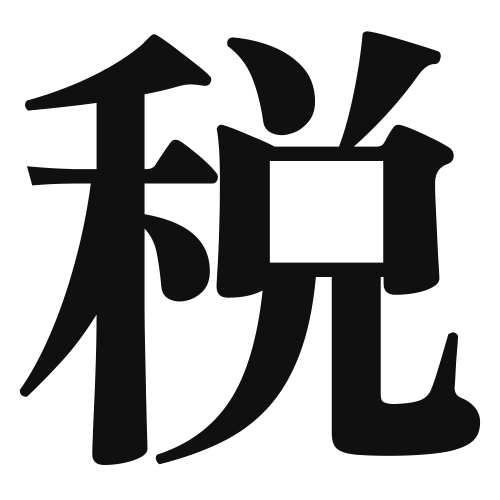1. Overview of Meaning
The kanji “税” (zei) means “tax.” It refers to a financial charge imposed by the government on individuals or businesses, which is used to fund public services and infrastructure.
2. Formation and Radicals
The kanji “税” is composed of two parts: the radical “禾” (which represents grain) and the character “是” (which means “to be” or “to exist”). The combination suggests a connection between agricultural production and the taxation system.
The radical “禾” indicates that the kanji is related to agriculture, which historically was a significant source of tax revenue.
3. Examples of Usage
Common words and phrases that include the kanji “税” are:
- 所得税 (shotokuzei) – income tax
- 消費税 (shouhizei) – consumption tax
- 法人税 (houjinzei) – corporate tax
Example sentence in daily conversation:
「今年の所得税は高くなりそうです。」(Kotoshi no shotokuzei wa takaku narisou desu.) – “It seems that this year’s income tax will be high.”
4. Synonyms and Antonyms
Similar kanji with related meanings include:
- 料金 (ryoukin) – fee or charge (usually for services)
- 負担 (futan) – burden (referring to the burden of taxes)
Antonyms include:
- 免税 (menzei) – tax exemption
5. Cultural and Historical Background
The concept of taxation is deeply rooted in Japanese culture, reflecting the historical reliance on agriculture and the need for public funding. Taxes have evolved over time, influencing social structures and economic policies.
Proverbs and idioms related to taxes include:
- 「税金は国の血液」(Zeikin wa kuni no ketsueki) – “Taxes are the blood of the nation,” emphasizing the importance of taxes for national welfare.
